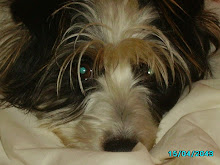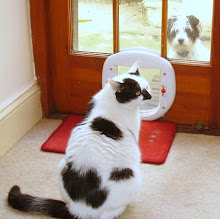A WALK ROUND FLUSHING AND MYLOR HARBOUR
Taking in woods, the coast, ice cream and a bowling green
This is one of my favourite local walks, as there are beautiful woods, wonderful views of the Carrick Roads, all kinds of boats, Falmouth docks and St Just in Roseland. Or if you're my dog, Mollie, it's wonderful for rabbit hunting and swimming.
Flushing was named Nankersey by Dutch engineers from Flushing in Holland who built the three main quays in the village. The grand houses on St Peter's Hill, the road that leads into the village, were owned by captains of the packet ships (mail-boats) that docked in nearby Falmouth.
In the 19th and 20th century, the village's economy mainly relied upon fishing, the two farms (Trefusis and Tregew) and Falmouth Docks. There was also briefly a copper mine on Jericho beach, but this proved to be unworkable commercially.
Flushing is also famous for its carnival week at the end of July and for the excellent Nankersey Choir which performs all over Cornwall. Falmouth Boat Construction Company has built traditional wooden craft since the early 1880s, and during the war years, motor torpedo boats were produced. There is a passenger ferry to and from Flushing Quay to Falmouth's Prince of Wales Pier which acts as a school bus for many children.
One sunny afternoon, my husband, Mollie and I drove from Falmouth on the A39 and at Penryn turned right signposted Flushing 2 miles. Several hundred yards later we turned right again, following signs for Flushing and Mylor Harbour, and at a T junction on the outskirts of Flushing, we turned right and headed down into the village where you can park on Flushing Quay.
Husband was going off to the pub (no surprise there), so Mollie and I retraced our steps past the Seven Stars pub and turned right into Kersey Road, up the hill to a housing estate where we turned up a Public Footpath by a road sign saying Orchard Vale.
This steep path was fringed with bluebells, ragged robin and campion, and led over a stile to a huge field with ploughed rich earth like chocolate fudge. The path ran round the edge of this massive field with clouds leaving magnificent sweeping shadows, and looking up I saw a herd of Friesians silhouetted against the sky like a still life painting. Mollie bounded ahead, like a cross between a rabbit and a sheep, as we clambered over an overgrown stile, across the top of a field of potatoes, and into a private drive. We turned left here, by a cattle grid, to the end of the drive, crossed the road and took a Public Footpath sign to Trelew on our right.
A blaze of buttercups greeted us, a cross sounding pheasant squawked his disapproval, and I saw my first foxglove of the year. At the bottom of the field we turned left into a wood with masses of wild garlic and a Cabbage White alighting on a tired looking bluebell. A stream rippled on our right as we splashed our way down a stony path, but sunshine dappled the trees, cheering our afternoon.
Passing through a five barred gate, we continued along an even muddier path round to the left, over a stream which led to a gateway where we turned right, along a private drive and right again into Church Road. Here an elderly lady greeted a very muddy Mollie with delight and even gave her a back rub, ensuring a friend for life. Regretfully leaving her behind, Mollie and I headed up the hill, where there is a raised pavement useful if you have children and dogs: the road is narrow and there can be a fair amount of traffic. As we walked along, swallows darted in front of us and a blue tit perched on guttering in front of us to have a drink.
The path opens out into a creek and we continued up the hill, round the back of some houses and came to another road. Crossing this, we entered Mylor churchyard through a wrought iron gate, walked down some steps and past a daisy strewn bank to the Ganges memorial, erected in 1872. This lists 53 young cadets, aged 15-17, who died while training for the Royal Navy on HMS Ganges from 1866-1899. The majority died from measles, scarletina and influenza, and 8 were either killed on board or drowned.
St Mylor Church, founded in 450 AD by a Celtic Bishop, is very popular for weddings, and today was beautifully decked with flowers from a previous wedding. Back in the churchyard we passed a blazing scarlet rhododendron that reminded me of flamenco skirts, and emerged into Mylor Harbour.
There are several eateries here but today my husband was sitting outside staring wistfully at the boats in the marina. “There's a lovely day boat down there that would just do us,” he said.
I grunted, made a note to get a lottery ticket, and went to get something to cheer him up. He can never resist a good vanilla ice cream, so we sat in contented silence, licking our ices and listening to the clink of rigging. Up the river a fishing trawler was coming in, gulls screaming overhead, desperate for fish scraps.
Leaving husband behind, Mollie and I wiped the last of the ice cream from our mouths (and whiskers in her case) and walked past Restronguet Sailing Club on our right. Dogs are requested to be on leads here as there is an outside picnic area and Mollie for one is always keen to hoover up other people's tea.
Past the sailing club was a yellow waymark arrow which we followed through a field full of catamarans leading to a stile which led to the first field on the Trefusis Estate. Looking out to the left we could see Restronguet, Loe Beach, a distant Trelissick House with its magnificent porticos and further on St Just in Roseland.
Squelching our way through the mud, we walked through a succession of fields, one of potatoes, the next studded with buttercups, thistles and speedwell. This part of the walk is good for those who like flat walks and up on our right were woods with a thick carpet of bluebells. We were drawn there to inhale the wonderfully deep scented smell, and there in front of us was a small rabbit, gazing raptly ahead. It thumped its back feet, then dived down the nearest rabbit hole, disappearing before Mollie could chase it - to my relief.
The next field was reached by crossing a fast running stream good for thirsty dogs. Around us spring was bursting out everywhere, each tree a remarkably different shade of green, reaching young fingertips to the sky. The last of the blackthorn was turning brown, and at our feet new ferns uncurled like babies' fists.
Looking out, St Mawes Castle came into view, then St Anthony lighthouse; further on was the famous Black Rock marker, then Falmouth castle, the docks and Falmouth itself. The St Mawes Ferry was returning to Falmouth on one of its half hourly journeys, and ahead was the distinctive cream coloured Falmouth Hotel, then further round the observatory, recently sold as a pricey dwelling. We emerged onto the broad green sweep of Trefusis Point and saw Falmouth ahead of us, leading round to the marina and Penryn River.
Walking through a gap in the hedge we arrived at Kiln Beach so Mollie could have a swim (this private beach is dog friendly all year round), but you can continue along the field and into the woods. Either way leads back to Trefusis Road which we walked along until we reached Flushing Bowling Green on our right at the end. Climbing up here we had the most fabulous view over the roofs of Flushing, over to Falmouth and up the Penryn River. We sat for a moment and enjoyed the view, before following the path down the hill and emerging by Flushing School. Here we continued down the road, to emerge by the Seven Stars pub where we found my husband sitting outside enjoying a peaceful pint.
We joined him, reflecting on the fact that though we love Falmouth, Flushing comes a good second best. And it gets the evening sunshine, which Falmouth doesn't. Sitting in the early evening sun with a drink takes some beating. Especially in this country.
FACTBOX
OS Explorer 105 Falmouth & Mevagissey
Length: 4 miles
Duration: Approx 2 hours; moderate/easy going, can be very muddy in places
St Mawes Ferry - www.kingharryscornwall.co.uk/ferries/st_mawes_ferry
Flushing Ferry - www.falriverlinks.co.uk/client/ferry_timetables/timetable_flushingferry.html
Restronguet Sailing Club - www.mysailingclub.org
St Mylor church - www.stmylor.org.uk
Castaways wine bar – 01326 377710
Mylor Cafe – 01326 373712
Seven Stars, Flushing – 01326 374373




























